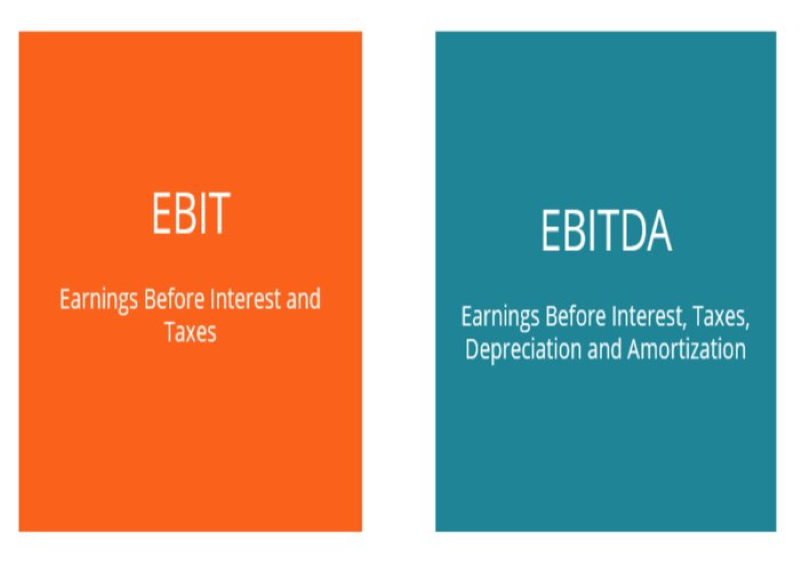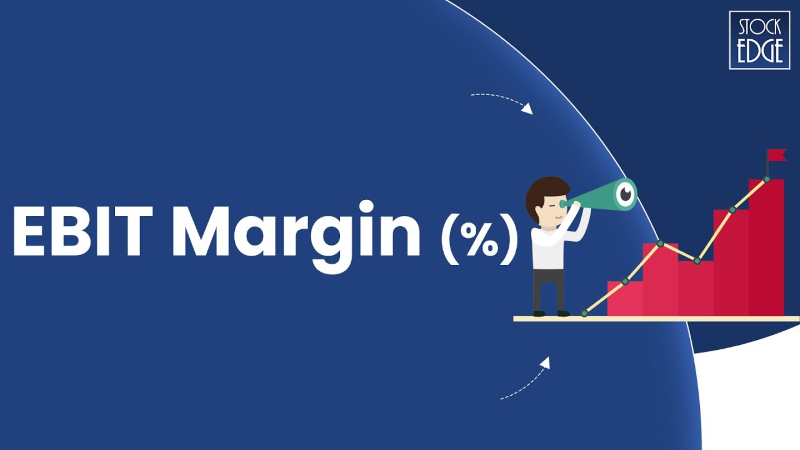What is EBIT in finance? This is an important financial indicator that helps evaluate the performance of a business. The article below will explain this indicator in detail.
1. What is EBIT index?
Index What is EBIT in finance?? Let's find out What is EBIT abbreviation? any? EBIT (abbreviation of Earnings Before Interest and TaxesEarnings before interest and taxes (EPS) is one of the important financial indicators that helps evaluate the business performance of an enterprise. This indicator reflects the level of profitability from core business activities without being affected by financial structure or tax policy.
By focusing on profits from core operations, EBIT provides an objective view for investors and managers, thereby supporting them in analyzing and making appropriate strategic decisions.

2. What is EBITDA?
EBITDA, an acronym for the phrase Earnings Before Interest, Taxes, Depreciation, and Amortization (Earnings before interest, taxes, depreciation, and amortization), is an extension of EBIT. By excluding depreciation and amortization expenses, EBITDA helps provide a more complete picture of a company's true profitability, especially when ignoring non-cash elements.
Because of this characteristic, EBITDA is often used to evaluate a business's ability to generate cash flow without being affected by financial factors or costs unrelated to the core business.
3. What is the difference between EBIT and EBITDA?
Although both are important financial metrics, EBIT and EBITDA differ significantly in the extent to which they exclude expenses.
- EBIT: This ratio excludes only interest and taxes, thereby focusing on profits from core business activities.
- EBITDA: Eliminates additional depreciation and amortization costs, providing greater insight into financial performance, particularly cash flow generation.
Therefore, EBITDA is often preferred when evaluating a business's actual profitability to find out financial investment channels efficiency, while EBIT is suitable for analyzing business performance from core operations.

4. The role and significance of EBIT
EBIT serves as a measure of business performance, eliminating the impact of external factors such as finance costs or taxes. This provides transparency and accuracy in evaluating core business activities.
For investors and managers, EBIT is an important measure to assess whether a business is optimizing its business strategy. In addition, it helps analyze a business's performance in the context of the broader industry or market.
5. What is the EBIT index in financial statements?
Position of EBIT:
EBIT is typically presented on the profit and loss statement (income statement), between the revenue line and the net income line. This is an important place to assess the level of profit before deducting financial factors such as interest and taxes.
Meaning:
- Business performance evaluation: EBIT shows the profitability of a business's core operations, helping to determine whether the current strategy is appropriate or not.
- Performance comparison: Because it is not affected by external factors such as financial structure or tax policy, EBIT is an ideal indicator for comparing businesses within the same industry.
- Trend analysis: Tracking EBIT over different periods helps businesses clearly identify growth or decline trends, thereby making appropriate strategic adjustments.
6. How to determine EBIT
Calculating EBIT (Earnings Before Interest and Taxes) requires a detailed understanding of a business's net revenue and operating expenses. So How is EBIT calculated?? The calculation formula can be used as follows:
EBIT = Net Revenue – Operating Expenses
Components of EBIT
- Net revenue:
This is the total amount of money a business actually receives from its operations after deducting discounts, trade discounts, and returned goods. Net revenue reflects the level of success of a business in selling goods or providing services during a given period. - Operating costs:
Operating expenses include all expenses required to maintain and operate a business. These expenses are typically divided into the following three main groups:- Production cost: Costs directly related to the production of goods or services, including raw materials, wages for direct labor, and ancillary costs such as utilities or equipment maintenance.
- Cost of sales: Includes expenses related to the marketing and distribution of products, such as advertising costs, shipping costs, or commissions paid to sales staff.
- Management costs: These are expenses incurred for the administration and management of a business, such as office staff salaries, office rent, legal fees, and other administrative expenses.
Benefits of calculating EBIT
EBIT is not only a measure of profitability but also brings many values in financial analysis:
- Performance Evaluation: Through EBIT, businesses can know their core business performance without being affected by factors such as interest or tax policies. This helps managers easily detect and adjust existing problems in their operating strategy.
- Compare financial performance: EBIT is an important tool for comparing businesses, especially within the same industry. Since this indicator is not affected by capital structure or tax factors, it provides a more objective view of each company's operating performance.
7. What is EBIT Margin?
EBIT margin, also known as EBIT margin, is a widely used financial ratio that measures the ability to generate profits from revenue before deducting interest and tax expenses. Expressed as a percentage, this ratio provides specific information about the percentage of revenue retained as net profit from the main business.

Formula for calculating EBIT Margin
EBIT margin can be determined using the following formula:
EBIT Margin = (EBIT / Revenue) × 100
- EBIT: Represents earnings before interest and taxes, accurately reflecting the performance from the core business activities of the enterprise.
- Revenue: Is the total amount of money a business receives for providing a product or service, excluding discounts or rebates.
Meaning of EBIT Margin
- Profitability Assessment:
EBIT margin helps investors and business managers analyze the profitability of revenue. A high EBIT margin is a sign that the business has a good cost control strategy, while effectively taking advantage of opportunities to optimize profits. - Compare performance between businesses/companies:
By eliminating the influence of financial factors such as interest rates or capital structure, EBIT margin becomes a reliable tool for comparing financial performance between companies in the same industry. - Track activity trends:
The change in EBIT margin over different periods helps businesses identify development trends. When this margin increases, it may indicate that the business is improving its ability to control costs or increase operating efficiency.
Value of EBIT Margin
EBIT margin provides valuable information about a company's ability to optimize profits and manage costs, helping managers and investors make informed decisions.
8. What is the role of EBIT and EBITDA in corporate finance?
Both EBIT and EBITDA are considered important tools in evaluating a company's financial performance. These indicators not only reflect profitability but also help eliminate the impact of non-operating factors, providing a clearer view of the actual business situation.
The Importance of EBIT and EBITDA
- Assessing the profitability of core business activities:
EBIT focuses on the profits from core business activities, while EBITDA goes deeper by removing non-cash factors such as depreciation and amortization. This helps investors more accurately assess the company's ability to create real value. - Compare performance between businesses/companies:
Because they are not affected by interest rates or tax policies, both EBIT and EBITDA are used to compare the financial performance of businesses in the same industry, ensuring objectivity and fairness. - Support in making effective strategic decisions:
Through analyzing these indicators, managers can identify strengths and weaknesses in business operations. This is the basis for establishing strategic plans, improving financial performance and enhancing competitiveness in the market.
The Long-Term Benefits of EBIT and EBITDA
EBIT and EBITDA not only provide accurate financial data but also help businesses build a strong financial foundation, serving sustainable development in the future.
9. Conclusion
Through the above article, HVA Group hopes that investors have found the answer to the question. What is EBIT?in finance. These important financial ratios help evaluate a company's operating performance. Understanding EBIT and EBITDA will not only help you make better investment decisions, but will also help you manage your company's finances more effectively. HVA We recommend that you monitor these ratios to get an overview of the financial situation and profitability of the business you are interested in.











